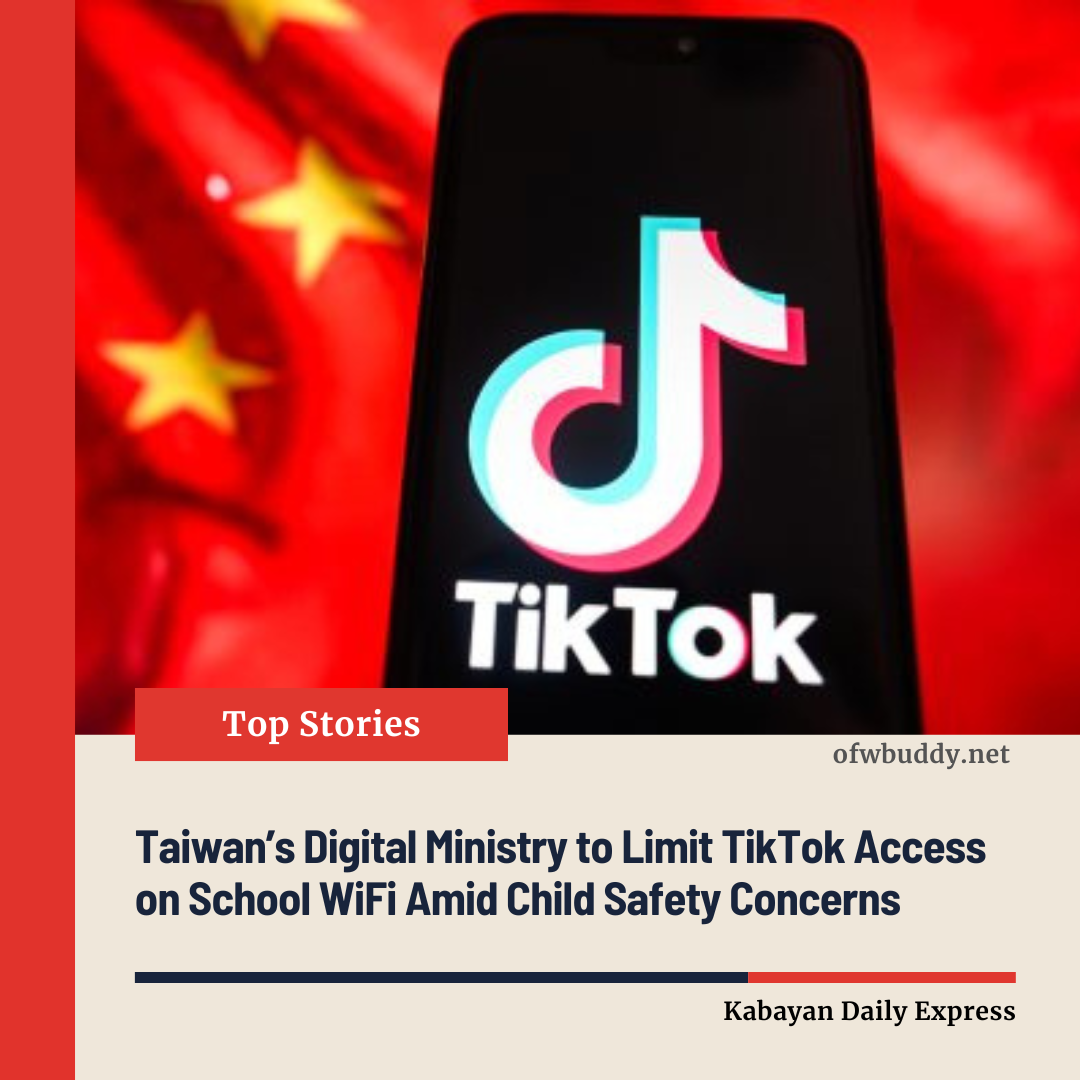TAIPEI, Taiwan (October 16, 2025)— The Ministry of Digital Affairs (MODA) announced plans to restrict TikTok access on school WiFi networks, as lawmakers push for a broader campus ban over growing concerns about the app’s potential effects on children’s mental and physical health.
During a Legislative Yuan session on Wednesday, KMT Legislator Hung Mong-kai (洪孟楷) said that TikTok’s influence on young users warrants urgent attention, urging the government to impose a comprehensive ban on the app within school grounds.
Digital Minister Lin Yi-ching (林宜敬) confirmed that the ministry has already placed TikTok under its regulatory supervision, noting that the platform poses risks related to data security, Chinese ownership, and child protection.
Focus on Data, Ownership, and Child Safety
According to Lin, the ministry’s current review focuses on three main areas:
-
Data storage and privacy, to ensure user information is securely managed;
-
Ownership and control, given concerns about Chinese influence; and
-
Risks to minors, particularly the platform’s psychological impact on young users.
Lin said Taiwan is coordinating with the United States to address the first two concerns, while child protection measures are being developed in partnership with the Ministry of Education and other agencies.
Restrictions on Underage Users
Proposed measures include banning TikTok accounts for children under 12, implementing usage limits for those aged 13 to 15, and blocking the app on school WiFi networks. Lin clarified that schools will not be required to inspect students’ devices, as access will be automatically filtered through network controls.
When asked about a complete nationwide ban, Lin said such a decision would require broad public consensus, as it touches on issues of free speech and digital rights. For now, the ministry’s immediate priority is protecting minors from harmful online content.
Broader Digital Protection Initiative
Legislator Hung emphasized that child protection efforts should go beyond TikTok and include other high-risk applications, such as dating or anonymous chat platforms. He called for a comprehensive review and classification system to evaluate app safety for minors.
Minister Lin responded that the ministry would work with the education and health ministries to design a cross-agency strategy, with initial policy recommendations expected before the end of the year.
The move reflects Taiwan’s growing effort to strengthen digital safety regulations, balancing internet freedom with child welfare and cybersecurity.

